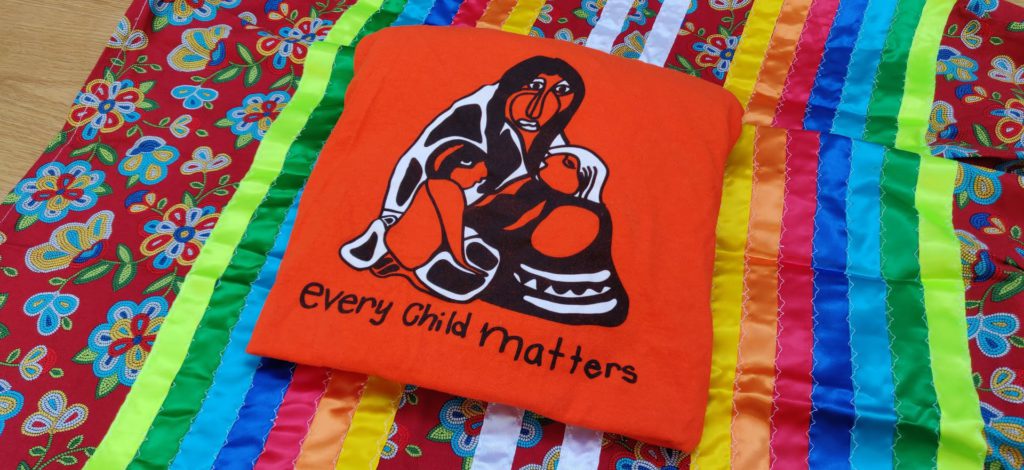Resources to Develop Personal Land Acknowledgements
August 27, 2025
Reconciliation is important to our team both personally and professionally, and one of the areas we teach organizations about is how their team can develop individual, authentic land acknowledgements.
In our courses, we teach that a land acknowledgement is a way to recognize and respect the fact that we are here on land that has been home to Indigenous peoples since time immemorial. It should not be about checking a box or reciting a cookie-cutter script. It is about showing awareness, building relationships, and grounding what we do and our work in truth.
Folks often struggle with how to find information on the land they are on now, as well as where they come from. We encourage people to share where they come from as a land acknowledgement is a form of relational introduction. But that, too, can have its complexities.
We’ve compiled a list of resources on Indigenous/indigenous peoples globally. It is critical to note that we did not develop any of these resources, and you will need to do your own work to vet the sources both from a critical analysis perspective and from whether they align with you culturally. Since, after all, your land acknowledgement and introduction are your own. Your own family and ancestors’ experiences with territory may not align with these. Also, note that some areas of the world have more sparse information in English online. If you notice we’ve included a resource that has issues, please feel free to reach out at alicia@edifiedprojects.com so we can do our own fact-checking.
Again, these resources are provided as a starting point only, and you should always fact-check what you see with additional sources.
General / Overview
An overview PDF created by Indigenous and non-Indigenous CAMH employees who are members of the Reconciliation Working Group.
Turtle Island
An interactive global map that is a living document, informed by the contributions of Indigenous communities, Indigenous knowledge holders and their stories. We have been told this is most accurate in Turtle Island (North America), and from our perspectives, still needs additional fact-checking when looking within Canada. This post describes some of the difficulties in developing the maps in Africa, for example. And the team has a feedback page to raise any concerns. Overall, this is generally where we recommend people get started in Turtle Island.
Indigenous Peoples in Toronto: An Introduction for Newcomers
Covers Indigenous Peoples, Indigenous history, contemporary reality, and cultural awareness in Toronto.
Global Resources
LandMark: Global Platform of Indigenous & Community Lands
An interactive global map of Indigenous and community lands, providing information to support land rights and tenure.
Mapped: The World’s Indigenous Peoples
Infographics and data on indigenous populations worldwide.
ICCA Registry: Territories of Life
An online platform for territories and areas conserved by Indigenous Peoples and local communities, featuring data, case studies, maps, and stories.
UN Permanent Forum on Indigenous Issues (UNPFII)
An advisory body to the UN that discusses Indigenous issues related to economic and social development, culture, environment, education, health, and human rights.
Indigenous Peoples Rights International (IPRI)
A global Indigenous-led organization that works to protect Indigenous rights and support Indigenous human rights defenders.
Minority Rights Group (MRG)
Provides country profiles on minorities and Indigenous communities, offering insights into their rights and challenges.
Australia – AIATSIS Map of Indigenous Australia
A map representing the language, social, or nation groups of Aboriginal Australia, showing general locations of larger groupings.
Africa – IPACC (Indigenous Peoples of Africa Co-ordinating Committee)
A network of Indigenous peoples’ organizations in African countries, focusing on advocacy and resource sharing.
Asia – AIPP (Asia Indigenous Peoples Pact)
A regional organization promoting and defending Indigenous peoples’ rights, with a focus on Asia.


